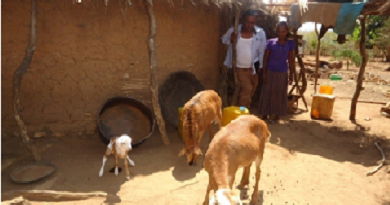Economic Empowerment
In the country’s poorest communities, girls and women bear the brunt of poverty. Fighting poverty in those communities requires focusing on girls and women to achieve equality. When families struggle to grow enough food to eat, or earn enough money to send all their kids to school, it’s the girls who are often the last to eat and first to be kept home from school. In these same communities, it’s the women who are frequently denied to own the land they have farmed their entire lives. As many as one in every three women has been beaten, coerced into sex or abused in some other way – most often by someone she knows, including by her husband or another male family member. This violence leaves survivors with long-term psychological and physical trauma; tears away at the social fabric of communities; and is used with terrifying effect in conflict settings, with women as the main target.
MIS Ethiopia projects in this program component include awareness creation and knowledge building of communities on any forms of violence on women and girls. This includes impacts of Harmful Traditional Practices and early marriage on reproductive health and HIV/AIDS prevalence, Mother and Child Health (MCH), HIV/AIDS prevention Care & support and malaria .
Poor people in different regions of Ethiopia are no different. There are millions of poor women smallholder farmers who struggle everyday to put food on the table. MIS Ethiopia has been working in these communities for past years and understands that it is not only training and capacity building that they need – and it’s also not just handouts and charity. The rural poor need access to the agricultural inputs and services they need to increase their harvests. They need access to buyers to sell their crops at fair prices. And they need access to products, services like health care and education, and household goods to provide their families with the lives they deserve.
We’re helping not only to build the skills of poor farmers but creating more inclusive markets and strengthening the links between poor people and the businesses they need in order to improve their lives and escape from poverty. In line with this the provision and access to microfinance to the poorest people has been targeted the remote villages in Ethiopia. Traditional banking has not penetrated most of Ethiopia, and microfinance has only reached a fraction of those who need it.
MIS Ethiopia’s Village Savings and Loan Associations (VSLAs), Self Help Group (SHGs) and Saving and Credit Cooperative Associations (SaCCAs) are built entirely on member savings and interest from loans; they receive no direct capital investment from MISE. However, their members do receive a year of intensive training from us in group dynamics and governance and in money management. This training enables the groups to become self-supporting, to flourish and even to establish and train other groups. we are doing to link SHG, VSLAs and SaCCAs to microfinance institutions and banks so that the poorest people in Ethiopia can have access to all of the financial services that can help them improve their lives.

